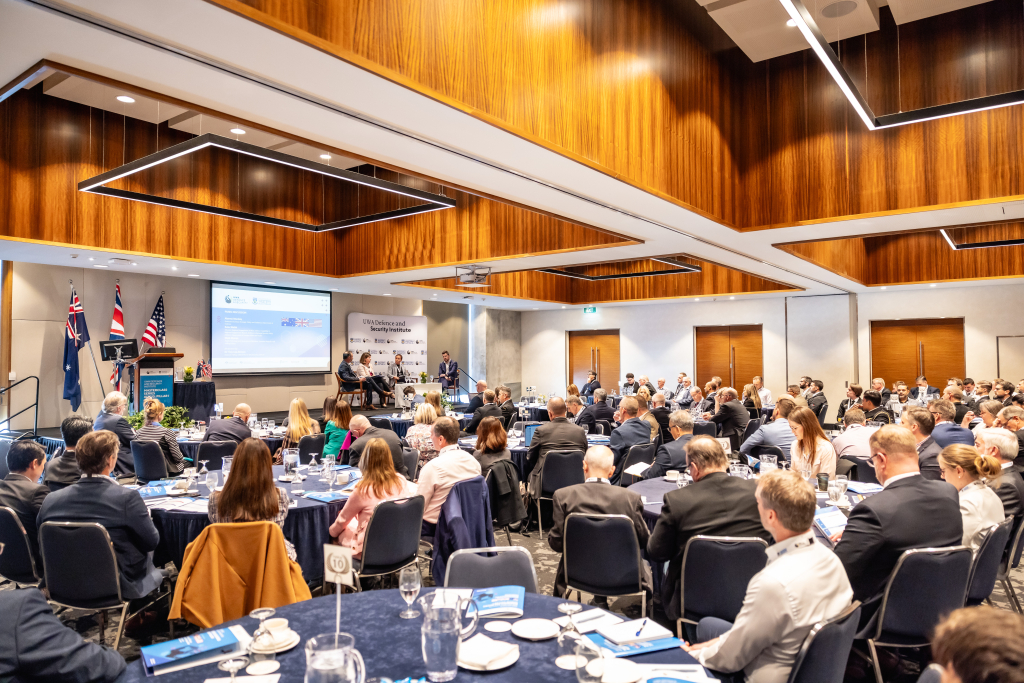[BLOG] AUKUS or ‘AUK’-ward? A Youth Perspective on Australia’s Acquisition of Conventionally-Armed Nuclear-Powered Submarines
09 September 2023 | Sarah Duong

On the 23-24th of August, I had the privilege of attending the Masterclass Series AUKUS: Pillar 1 event, hosted by the UWA Defence and Security Institute. The Masterclass, led by a diverse range of acclaimed presenters in Government, Defence and industry, provided a comprehensive insight into the impacts and opportunities created by Australia’s acquisition of nuclear-powered submarines. As a 20-year-old female student studying in the field of Political Science and International Relations, I found the content delivery both fascinating and invaluable.
The last decade has observed the acceleration of major geopolitical shifts, with the centre of gravity continuously shifting towards the Indo-Pacific. In this rapidly evolving strategic environment, it is clear that distance no longer provides the traditional security and protection it once did for Australian shores. Australia has been forced to reimagine its investments in capabilities and deterrence in order to defend its national interests. A pivotal provision of this is the acquisition of conventionally-armed nuclear-powered submarines, with the guidance and expertise from its ‘best mates’ in the global ‘playground’: the US and UK.
However, Australia’s future security cannot be obtained without considering, communicating and consulting with the population it promises to protect: the youth of today. Research has nodded to the widespread disillusionment that youth hold regarding Australia’s acquisition of nuclear-powered submarines. Moreso, many perceive the AUKUS alliance as comedic, with Australia continuously falling into the trap of being ‘played’ by US and UK as a mere ‘puppet’. Following Australia’s lack of engagement and consultation with regional countries who have already expressed disapproval over nuclear-powered submarines, AUKUS has also been criticised as too Euro-centric and old-fashioned.
I would like to reiterate the message propounded throughout the Masterclass; AUKUS is the symbolisation and reinforcement of a concrete commitment to one another. It is not just an alliance; it is a natural extension of Australia’s deep and long connections with the US and UK. Whilst tempting to think of the alliance as a military-economic partnership driven by self-interest, it is much more profound than that. We fight side by side not because we like war, but because we understand the need to defend our shared values. Furthermore, it should be stressed that AUKUS was conceived trilaterally, developed trilaterally, and will be continued trilaterally. This trilateralism is just a small part of a larger patchwork being stitched together to ensure a free and open Indo-Pacific, and wider global security.
Whilst attempts to derail AUKUS have been gaining traction, and disinformation becoming more nuanced, this can be mitigated by exhibiting a transparent approach across stakeholders. Across the Indo-Pacific, responses have been mixed. Namely, some of our South-East Asian and Pacific partners have expressed their objection. Points of tension can and should be dampened by open conversation. Nuclear-powered submarines are not just a personal acquisition for Australia, but an acquisition that will allow Australia to become a more capable and resilient partner for our friends in the region. Ensuring Australia’s security is ensuring the stability of a free and open Indo-Pacific.
For the next decade and beyond, Western Australia, with its unique geographic position, will become the epicentre for strategic AUKUS imagination and operationalisation. A future industrial base will necessitate the creation of tens of thousands of jobs, requiring a massive investment in the capabilities, skills and knowledge of our own citizens. The project will experience a vanguard of an entirely new workforce, presenting plentiful opportunities for youth. Within WA high schools, mentoring programs between navy and students should be targeted and invested in, thus inspiring future employment outcomes. An important emphasis should also be placed on the engagement and empowerment of young girls to join STEM pathways to confront the under-representation of women within the profession.
This is a long-term national endeavour with huge opportunity and huge risk. We will have to uphold our obligations to our US and UK partners in order to be taken seriously as a good custodian of nuclear propulsion technology. We will need to be build-ready and sovereign-ready. The project needs the support of youth in order for its operationalisation to be taken beyond design intent. Considering the prolonged timeframe that the project is expected to be unveiling at, the generational cycle of knowledge, skill and expertise needs to and must start today. It may be the case that the robust pipeline of submariners boarding the first submarines are not even walking yet. A collaboration of actors will be necessary to promote AUKUS and the project; from Government, defence and industry, trickling down to higher education and primary school institutions. Most critically, it is pivotal that AUKUS can be an alliance that the youth of today can look up to, not look down at.

About the Author
Sarah Duong is a third-year student at the University of Western Australia. She is currently completing a Bachelor of Arts, majoring in Law and Society, as well as second major in Political Science and International Relations. Upon completion of her studies, Sarah hopes to pursue a career pathway which connects her passions of law, diplomacy, and humanitarianism.

